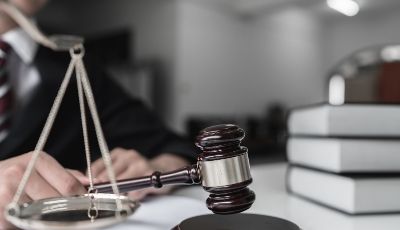In the intricate world of litigation, the role of an expert witness is crucial yet often shrouded in mystery. These specialists, whose insights are pivotal to the courtroom process, offer a wealth of knowledge that goes beyond the common understanding of everyday experience. Their contributions are not just about adding color to the legal arguments but are instrumental in clarifying complex issues that can sway the course of justice. Expert witnesses are typically called upon when a case involves specialized knowledge that falls outside the realm of common understanding. This might include fields such as medicine, engineering, finance, or technology. Their primary function is to provide objective, unbiased testimony that helps the court comprehend intricate details and nuances that would otherwise be inaccessible. Their expertise serves as a bridge between technical complexity and judicial clarity.
 One of the fundamental aspects of an expert witness is their ability to interpret and present evidence in a manner that is both accurate and comprehensible to the judge and jury. For instance, in a medical malpractice case, a physician expert witness might be tasked with explaining the standard of care, diagnosing errors, or detailing the implications of certain medical procedures. Their testimony can illuminate how deviations from established medical practices impacted the patient, thereby influencing the outcome of the case. Moreover, Visit Link Here expert witnesses bring credibility and authority to their testimony. Their qualifications, including years of experience, academic credentials, and professional accomplishments, lend weight to their opinions. In the courtroom, their expertise can validate or challenge the evidence presented by either party. This credibility is crucial because it helps the judge and jury assesses the reliability and relevance of the information provided. For example, an expert in forensic science might elucidate how evidence was collected, analyzed, and interpreted, thereby underscoring its significance or pointing out potential flaws in the process.
One of the fundamental aspects of an expert witness is their ability to interpret and present evidence in a manner that is both accurate and comprehensible to the judge and jury. For instance, in a medical malpractice case, a physician expert witness might be tasked with explaining the standard of care, diagnosing errors, or detailing the implications of certain medical procedures. Their testimony can illuminate how deviations from established medical practices impacted the patient, thereby influencing the outcome of the case. Moreover, Visit Link Here expert witnesses bring credibility and authority to their testimony. Their qualifications, including years of experience, academic credentials, and professional accomplishments, lend weight to their opinions. In the courtroom, their expertise can validate or challenge the evidence presented by either party. This credibility is crucial because it helps the judge and jury assesses the reliability and relevance of the information provided. For example, an expert in forensic science might elucidate how evidence was collected, analyzed, and interpreted, thereby underscoring its significance or pointing out potential flaws in the process.
In addition to presenting evidence, expert witnesses often assist in the formulation of case strategy. They might offer insights on the viability of certain arguments, suggest potential lines of inquiry, or highlight weaknesses in the opposing side’s case. Their involvement can significantly shape the direction of legal proceedings, making their role not just reactive but also proactive in navigating the complexities of the case. However, the role of an expert witness is not without its challenges. They must remain impartial and avoid advocating for either side, focusing solely on providing factual, objective information. This requirement ensures that their testimony is perceived as trustworthy and unbiased. Moreover, the effectiveness of their testimony is contingent upon their ability to communicate complex ideas clearly and persuasively, a skill that is as critical as their technical expertise. Expert witnesses are indispensable to the legal process, offering specialized knowledge that aids in the fair administration of justice. Their ability to clarify complex issues, bolster credibility, and contribute strategically makes them invaluable assets in the courtroom.